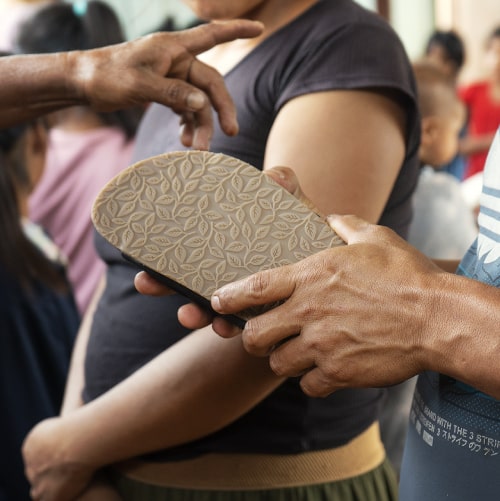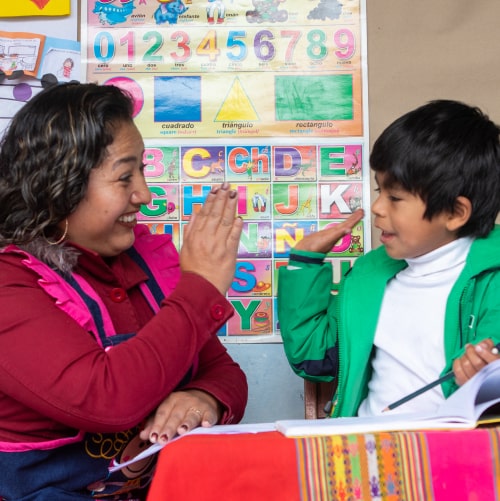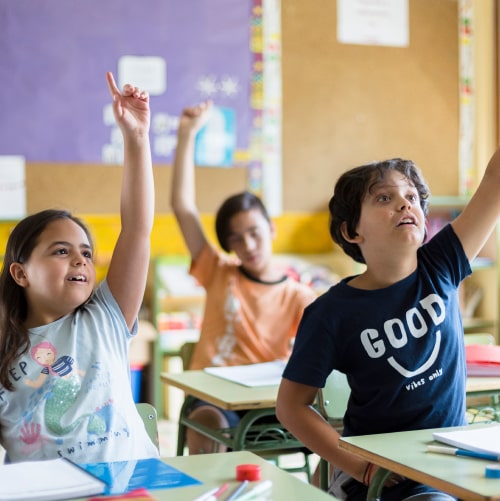Learn about Killa Natural, one of the companies selected for the pre-acceleration stage, in which each social enterprise, together with the team of specialists of the Entrepreneur Fund, develops a business plan and a financial model, and receives preparation for the presentation of its business before the Investment Committee of the program. This is the final stage of the process through which the ventures that will be part of the second portfolio of the Entrepreneur Fund, the social innovation program of the Wiese Foundation, will be selected.
The beginning of their story
Killa Natural as born from the passion to preserve the Amazon forest, its exuberant beauty and richness, as well as the ancestral knowledge of the native communities that, for centuries, have coexisted harmoniously and sustainably with this fragile ecosystem.
Moreover, Killa Natural is fully aware of the key role played by women from native Amazonian communities. They are the bearers of a very valuable immaterial cultural heritage: the mastery of 100% natural textile techniques of dyeing and painting, carried out through the use of local plants.
For centuries, the aforementioned techniques have been applied by Yanesha women in the crafting of their traditional clothing and those of their daughters. It is important to note that the transfer of this ancestral knowledge is practically natural and has been transmitted from generation to generation. Indeed, when Yanesha women become mothers, they must craft a naturally dyed one-piece dress decorated with iconography painted on the fabric and seeds, known as “Cushma,” for their daughters.
Through a collaborative and very respectful work, Killa co-creates, with them, ecological products, using, revaluing and rendering visible their amazing textile techniques, as well as their beautiful iconography, which constitutes a reflection of their worldview.
The minds behind this valuable initiative are Araceli Luna (CEO) and Elizabeth Luna (COO), sisters and founders of Killa Natural, who together started the journey, toward a sustainable lifestyle completely leaving aside the consumption of plastic. They confess that, although their focus was always on helping more people start and strengthen a more sustainable and nature-friendly lifestyle, they did not measure the wave of green consciousness that they would begin to set in motion.
Learn about their work with Yanesha communities
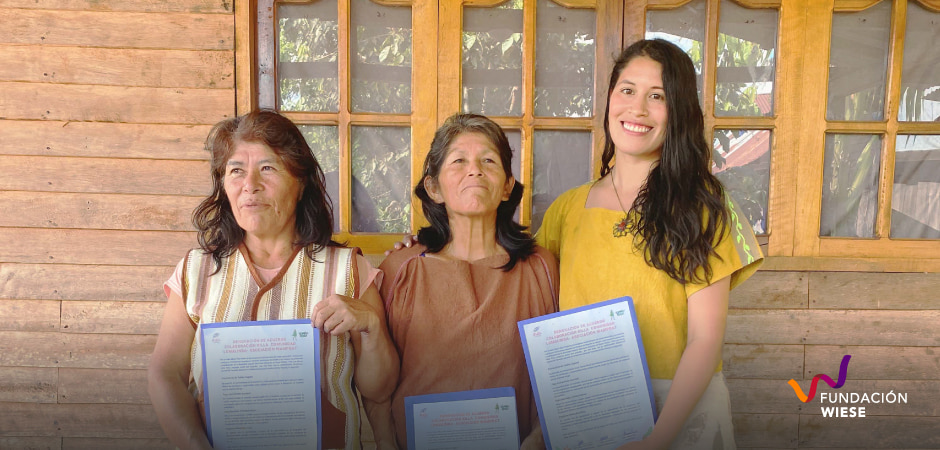
After a successful joint work with the Shipibo-Konibo communities of San Ramón, as of the year 2021, Killa Natural has made the decision to expand its work together with the association of artisans of the Yanesha community of “Loma Linda”. The main objective is to provide training to the artisans to improve their production processes and the quality of the dyeing finish, using circular production principles and completely natural materials. Moreover, it seeks to preserve the ancestral techniques of Yanesha dyeing. As a result, the Loma Linda community has become a strategic supplier of naturally dyed and printed fabrics for Killa Natural.
According to the 2017 CENSUS, conducted by INEI (National Statistics and Informatics Institute), 65 Yanesha native communities have been identified in Peru, of which 21 are located in the district of Palcazú. The Loma Linda community is located 4 hours away by car from the Main Square of Villa Rica.

Last May, the Entrepreneur Fund team travelled to Pasco, Oxapampa, District of Palcazú, with the purpose of learning more about the work that Killa Natural has been conducting with the Loma Linda community, and directly evaluating the quality of the relationship that the social enterprise has with its Amazonian allies, as well as the social impact that this alliance causes in the families of this town. The association of artisans is composed of nineteen women, whose ages range between 25 and 58. In addition to providing Killa Natural with dyed and printed fabrics, they work hard at making various handicrafts that they sell once a month at the fair in the town of Iscozacín, the capital of the district.
About ancestral dyeing

Ancestral dyeing is a technique that has been used for centuries in different cultures around the world. This technique uses natural dyes obtained from leaves, roots and tree barks to give the fabrics their color. It is a sustainable way of dyeing fabrics that respects the environment and produces unique and vibrant colors.
Peru is a country that has a rich tradition in ancestral dyeing, where it is considered to be an art and a very important cultural expression for the communities that practice it. Nowadays, communities like Loma Linda continue to practice ancestral dyeing, using traditional techniques and dyes based on local plants such as yetsniol, matico, tabaquillo, eucalyptus, turmeric, mango and payon, among others.
The fabrics used by the artisans are made specifically from cotton and natural fibers.

It is relevant to note that Killa Natural is currently providing training to the women of the Association of Artisans in the technique of natural printing. The classes are taught by Elizabeth Luna, designer and co-founder of Killa, who travels to Loma Linda to teach the artisans the entire printing process, from the collection and selection of leaves for the printing of fabrics, up to obtaining a fabric of the right quality for the crafting of garments.
Generating shared value
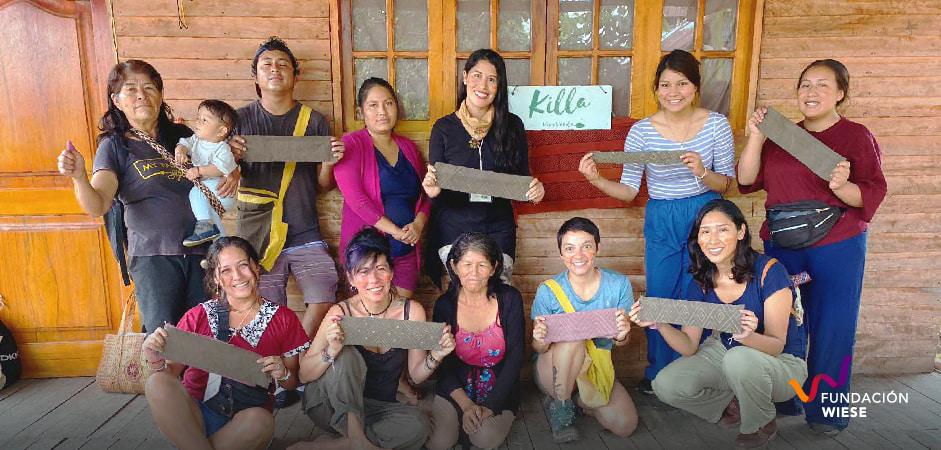
Killa Natural’s shared value strategy aims to improve its competitiveness, while contributing to the well-being of society and the environment of Loma Linda. Through the collaborative work that they do with the community, they offer their artisan women a new source of sustainable income, which allows them to improve their quality of life and that of their families.
Furthermore, the business model of Killa Natural not only has a positive impact on the Peruvian jungle, but also guarantees its customers sustainable, unique and culturally valuable products. It is currently working to position itself as a benchmark in sustainable fashion nationally and internationally.
In addition, Killa offers experiential experiences in the community of Loma Linda to the participants of its Volunteer Program “Saving Yacu” (saving the water), which include workshops and trainings of diverse types designed especially by volunteers to share with the community. In this way, volunteers can learn about life in native communities and live a practical experience about sustainability, while hosted by families from this community in the Pasco jungle. If you wish to learn more about this initiative, click here.
The Entrepreneur Fund of the Wiese Foundation
Araceli and Elizabeth tell us that for them the application process to the Entrepreneur Fund was quite interesting, given that it is the first time that they apply to a financing program from a non-profit organization. They consider that it has been a challenging process that has demanded a lot of patience and they hope that their passage through the Entrepreneur Fund will help them materialize their objectives with Killa Natural, adding forces and goals to achieve a more conscious and sustainable society. Learn more about Killa Natural, its products, its volunteer program and its social impact at www.killaviveverde.com




